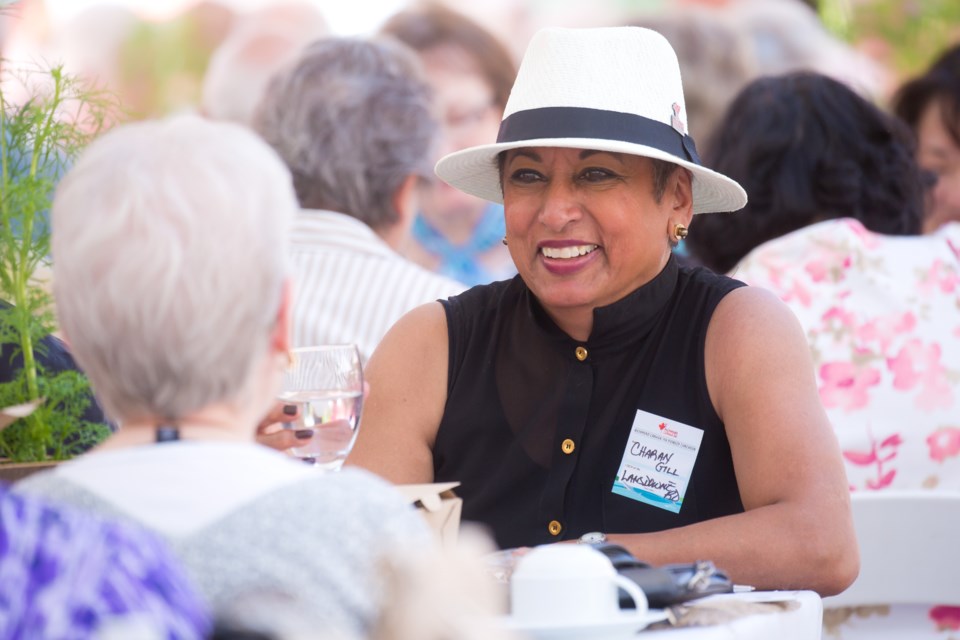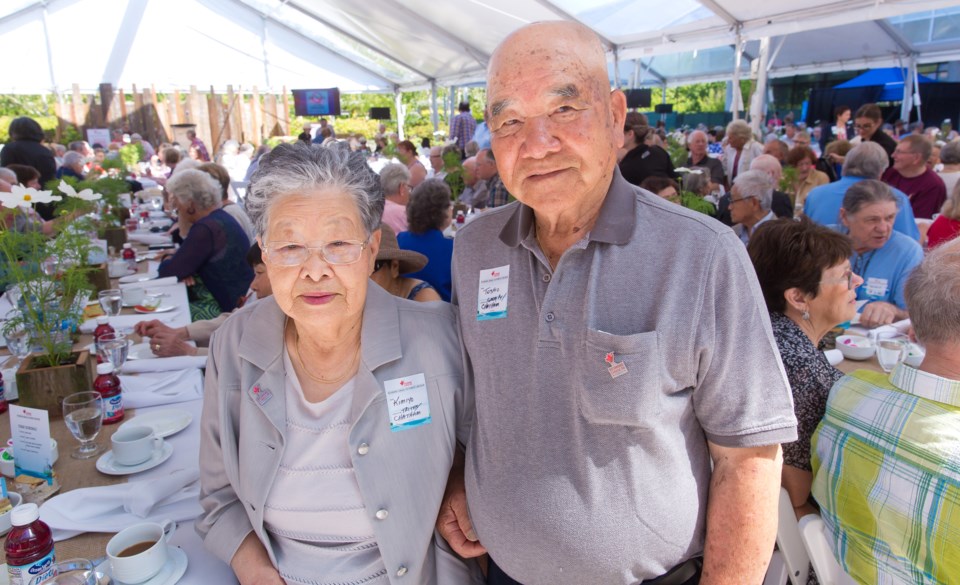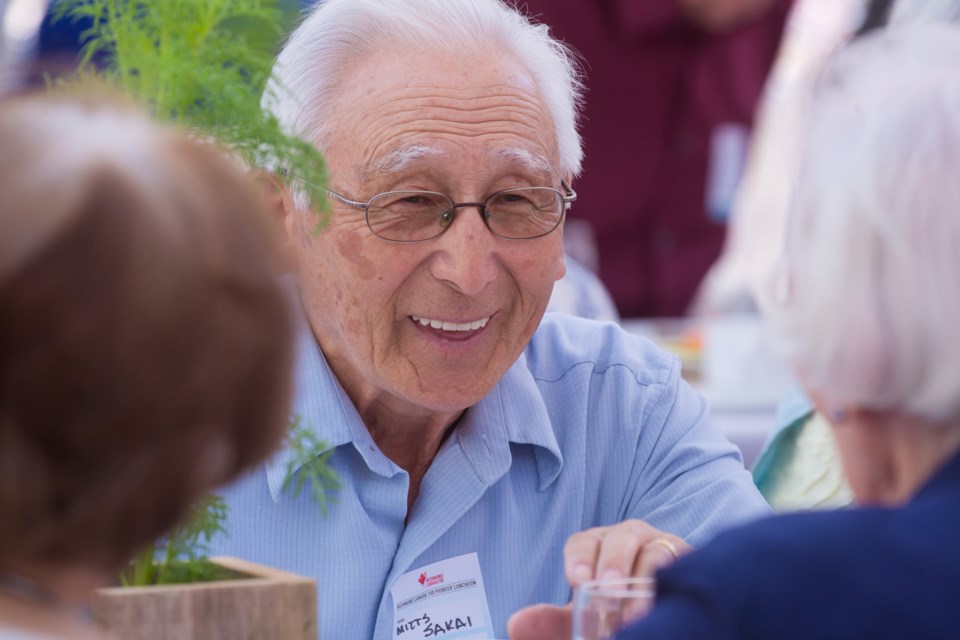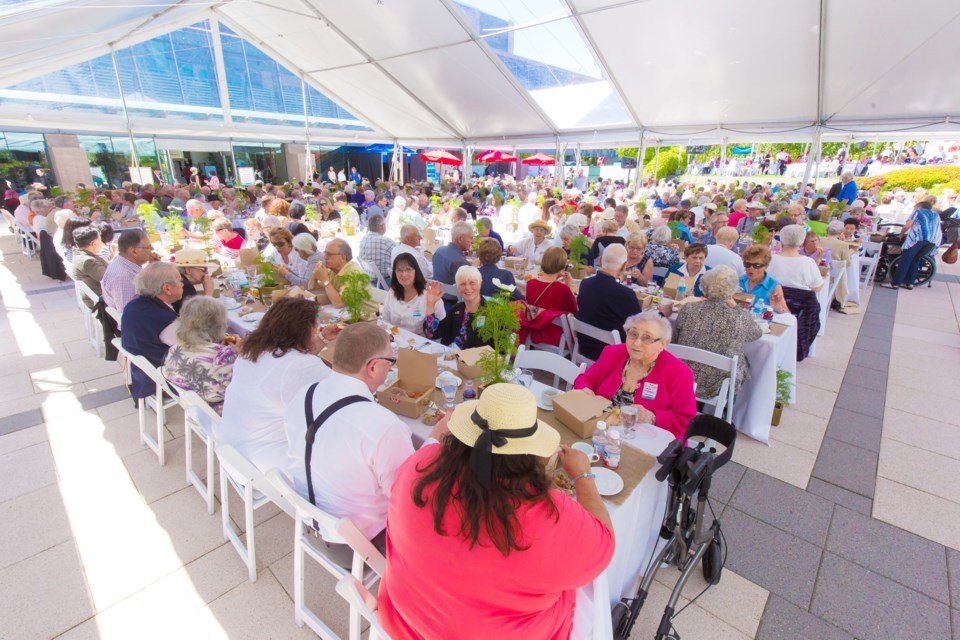
Horse races marked childhood
Charan Gill, 70, a retired teacher, came to Richmond as a one-year-old in 1948, when her dad took to raising and racing horses at Lansdowne Racetrack.
“The racetrack was in our backyard,” said Gill, who grew up on a five-acre lot on Lansdowne Road, but later moved to Steveston with her husband in 1981.
She attended four elementary schools, including the old Bridgeport school. She went to Cambie junior secondary and then Richmond High senior secondary.
She sees many similarities between now and then, but also big changes.
As a child, the neighbourhood referred to itself as the “League of Nations.”
“There were so many families from so many parts of the world — Japanese, Dutch, German, Scottish, Irish. We were just kids growing up. We didn’t have hyphenated names. We weren’t Indo-Canadian, Japanese-Canadian. We were just Canadians,” said Gill of an era prior to a multiculturalism policy.
“People were friendly, it was a smaller community. People knew each other. There wasn’t much to do.
“I miss the simplicity and small town feel. But I recognize that’s progress. I just wish (the city) had a bit more control. I don’t like the farmland disappearing. I don’t like the huge houses . . . I don’t want the world to change that much,” she said.
At the luncheon, she praised city organizers and met many old friends.
“I consider myself a Richmondite.”

Forever welcomed on Lulu
Kimiyo and Toshio Murao were born in Steveston in 1926 and 1920, respectively. They married in Japan, in 1947, but moved back to the village six years later, to raise six children.
While they don’t speak much English, daughter Kay Higo explained that they still very much enjoy being a part of the community.
“They go with the flow. My dad is pretty easy going.”
Toshio was active with the kendo club and Japanese language schools.
Toshio, who was a fisherman for nearly 50 years, still loves to play gateball behind the Buddhist church on Garry Street.
He still loves hanging out with young people, said Higo.
“I think he thinks he’s young,” she laughed.
“Mom is a bit more serious.”
Kimiyo raised the kids at home while Toshio fished. She was also an active member in the community, volunteering at community centres and the church. With a pioneer work ethic, Kimiyo also worked in community gardens and canneries.
The Muraos’ contributions to Richmond nearly never came to fruition. After being interned during the Second World War, Toshio was so upset, he threw his Canadian citizenship papers on the ground before leaving for Japan (feeling unwelcomed to stay). Higo said a police officer picked them up and handed them back to him.
“He told my dad, ‘you may need this one day.’” she explained.

He built 400 homes!
Mitts Sakai, 83, reckons he built 400 homes in Richmond during his career as a homebuilder.
“We built a lot of custom design homes, ones that lawyers and business people came to buy,” explained Sakai of the 1960s housing boom when farms were paved over.
In 1956 he founded his firm Fraserview Construction.
“At that time houses were coming up like mushrooms,” said Sakai.
Hard work — a true pioneer attribute — defined Sakai, whose family was once interned at a Japanese camp in Lilloet during the Second World War. Both his mom and dad were born in Wakayama, Japan, now a sister city to Richmond.
He graduated from Richmond High and took up fishing, after his father. He paid his boat off by the time he was 22, since the industry was so lucrative at the time.
“But fishing was seasonal. So, I learned carpentry,” said Sakai, a father-of-four.
Decades ago house construction cost $10 per square foot. Now it’s north of several hundred dollars. And some of his homes are being demolished now.
That’s OK, said Sakai.
“It’s hard to stop progress,” he said.
Sakai said Richmond has always been a friendly and peaceful place to live: “In 1949 my mother and father never locked their house.
"When we had a car; we never locked our car. Nothing was stolen,” quipped Sakai.
At the luncheon he said he met a person who remembers him building their home.
“It’s a small world,” he said.
You’ll often spot Sakai walking along the dyke — his favourite pastime.



